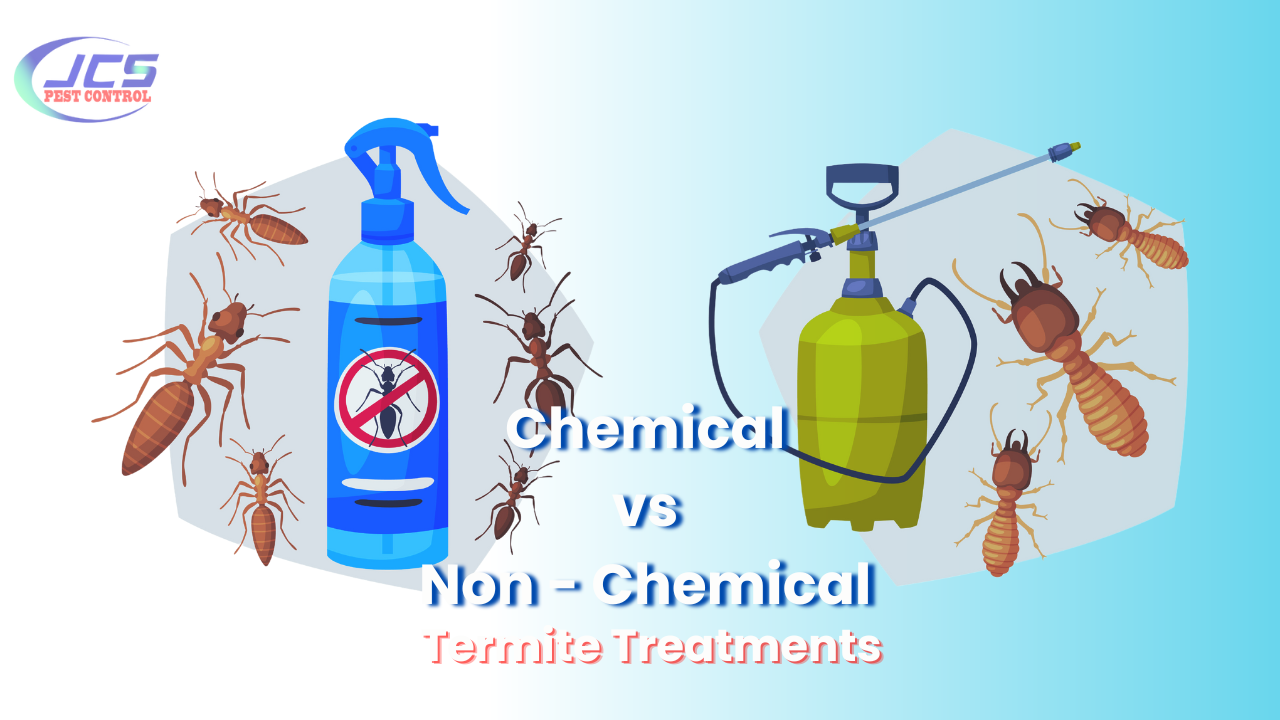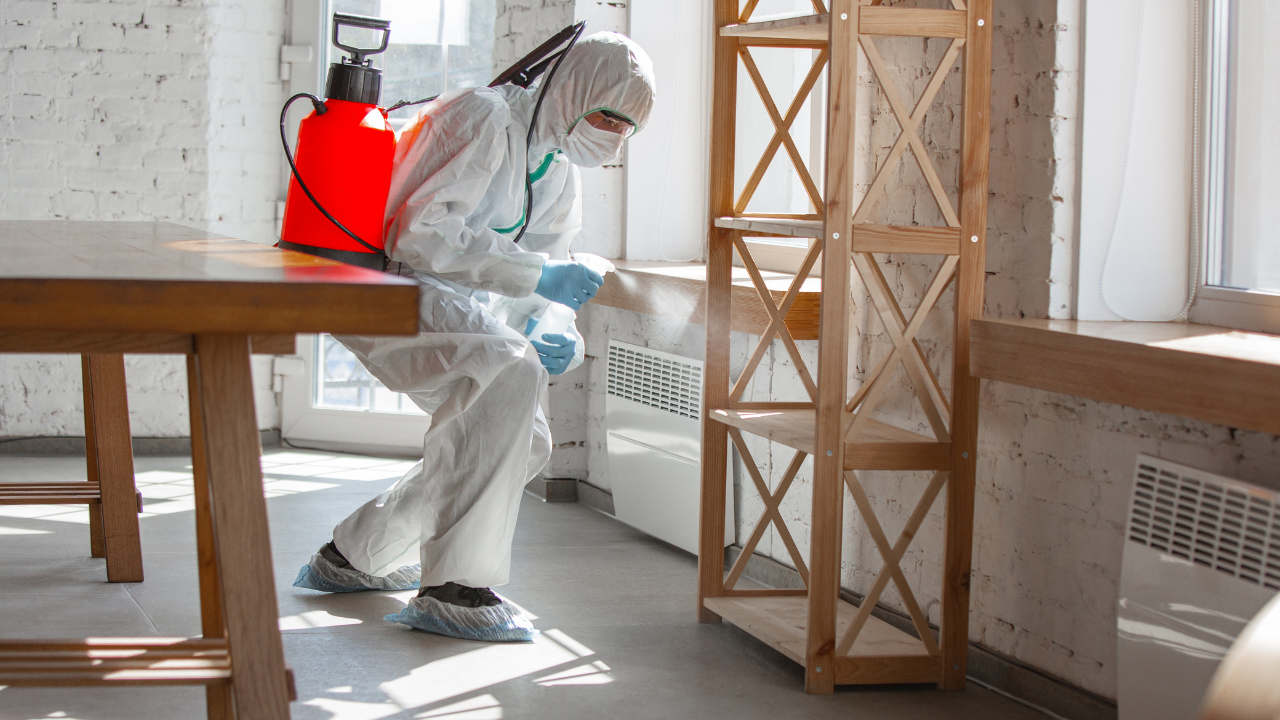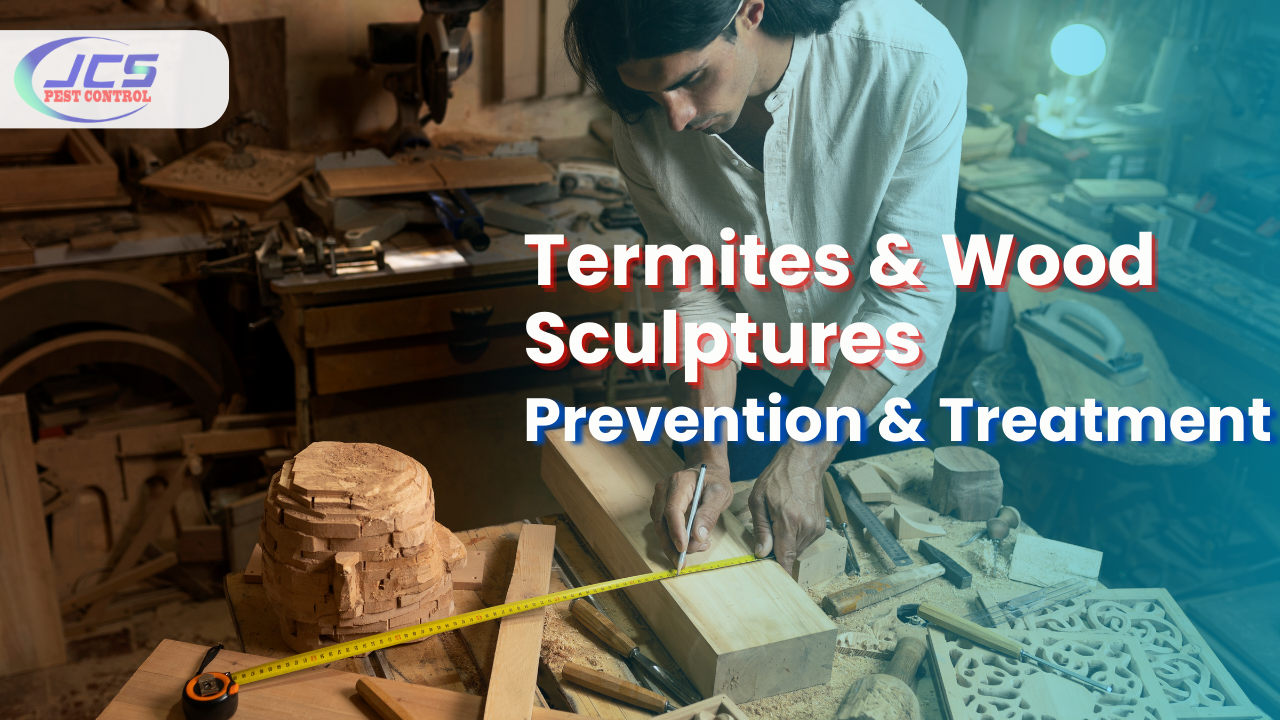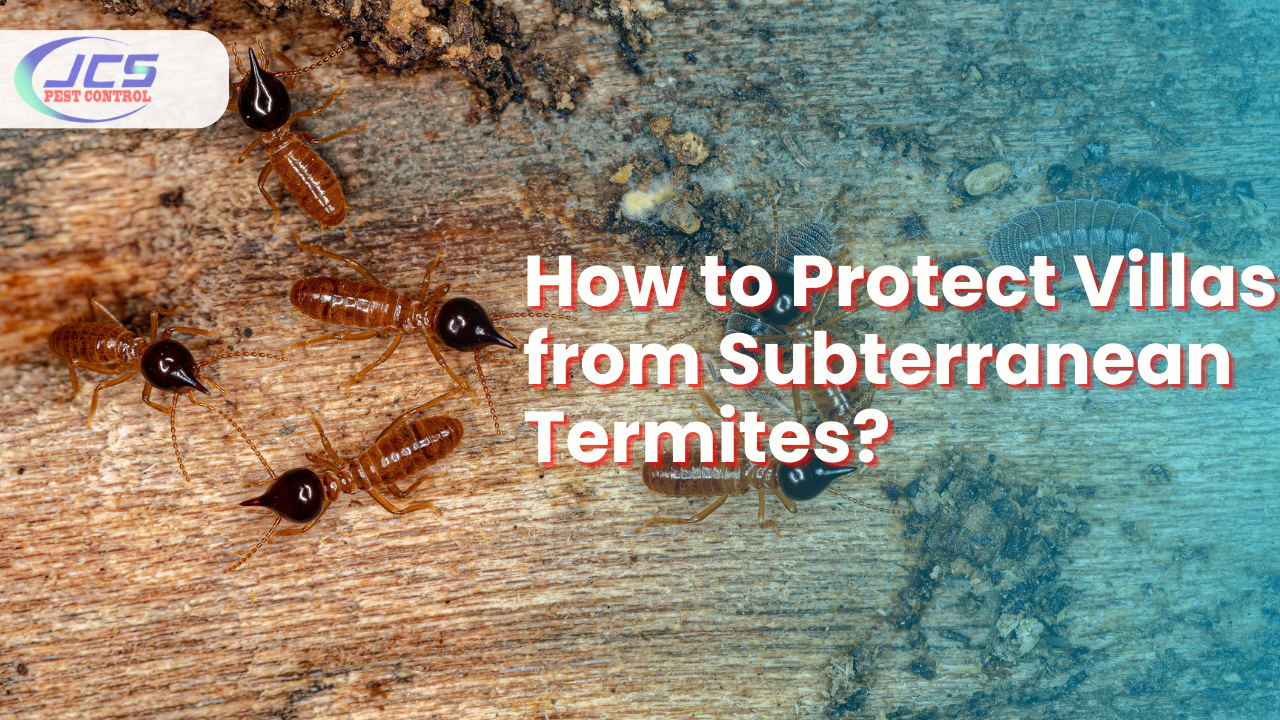Termites are a homeowner’s nightmare, silently wreaking havoc on wooden structures, furniture, and even foundation materials. If you’re dealing with a termite infestation, deciding between non-chemical and chemical termite treatment can be overwhelming. Let’s explore the differences between these approaches and the types of termite treatments available, so you can choose the most effective solution for your home.
Non-Chemical Termite Treatment
Non-toxic termite control treatments ensure the building of an environment that deters termites. This method often offered under Termite Control Chennai, is ideal for anyone who needs an environmentally friendly process, especially without chemicals that are too toxic.
Most people like non-toxic remedies and comprise of:
- Physical Barriers: Installing a physical barrier when constructing using stainless steel mesh or sand barriers means preventing termites from gaining entry into your home. Physical barriers are very hard-wearing and ensure extended-term protection.
- Biological Control: This is the control of termite colonies through natural predators such as nematodes. These microorganisms feed on termites, thus reducing their number without harming the environment. Biological control is a sustainable and effective method for managing infestations.
- Heat Treatment: Termites can be killed without chemicals by raising the temperature in infested areas to lethal levels. This method is often applied for localized infestations, and it has the added advantage of being chemical-free, making it safe for homes with children or pets.
- Electro-Guns and Microwave Systems: These are the most modern weapons that use electrical currents or microwave energy to kill termites in wood. This is an accurate method and good for spot treatments where infestation is confined to a small area.
- Moisture Control: Termites are attracted to moisture. Thus, proper ventilation and leak repair will prevent infestation. Moisture control is a significant preventive measure that complements other non-chemical treatments.
- Chemical Termite Treatment: Chemical termite treatments are preferred because they are effective and give long-lasting protection. JCS Pest Control provides the Best Pest Control Services In Chennai utilizing termiticides that either repel or kill termites, ensuring comprehensive and reliable results.
Here are some chemical methods:
- Soil Treatment: Application of liquid termiticides around your home in the soil. This makes a chemical barrier that repels or kills termites trying to invade your home. It provides total coverage and is quite effective with large infestations.
- Wood Treatment: It makes the wood unappealing to consume by termites because the wood is treated with chemicals of borate-based agents. This will protect furniture made from wood and other structural members.
- Bait Systems: The termite baits are put strategically around the property, and they can be poisonous and kill them or suppress their growth to kill the entire colony after they have ingested it. Bait systems are covert and efficient in constant termite control.
- Fumigation: It is a highly effective means of termite eradication if the infestation is heavy. Fumigate the entire property using gas-based termiticides. It is comprehensive but demands the temporary evacuation of the premises.
- Chemical Foams: Chemical foams are injected into wall voids or cracks to reach hidden termites and provide targeted eradication. This method is excellent for hard-to-reach areas where termites are found.
Key Differences Between Non-Chemical and Chemical Treatments
|
Aspect |
Non-Chemical Treatments |
Chemical Treatments |
|
Eco-Friendliness |
Highly eco-friendly, no toxic chemicals |
Involves chemical use, less eco-friendly |
|
Effectiveness |
Effective for prevention and small infestations |
Highly effective for severe infestations |
|
Longevity |
May require regular maintenance |
Provides long-lasting protection |
|
Cost |
Generally more affordable |
Depends on methods |
|
Safety |
Safe for pets, children, and the environment |
Requires precautions during application |
|
Application Speed |
May take longer to show results |
Fast-acting for immediate results |
Types of Termite Treatment: How to Decide
The type of treatment for termite infestation you would opt for is dependent on the infestation level, budget, and environmental considerations. For light infestations and those seeking preventive measures, non-chemical treatments are adequate, but more severe infestations require chemical treatments for quicker and better results.
For example,
- If your house has not been fully constructed yet, you can install physical barriers to prevent future infestations.
- In case you find the termite infestation in isolation, it is possible to think of treatment by hot treatment or bait system.
- Soil treatment, even fumigation if you have a serious infestation
Why choose JCS Pest Control?
JCS Pest Control will address your termite treatment requirement. Its series of services include non-chemical and chemical treatment options as well. Their team delivers personalized solutions designed to meet your unique requirements, offering efficient and environmentally friendly pest management. With the latest technology and a commitment to customer satisfaction, JCS Pest Control stands out as a trusted partner in protecting your home from termites. Whether you prioritize eco-friendliness or rapid results, JCS Pest Control will guide you through the decision-making process and deliver unmatched service. Secure your investment with the expertise of JCS Pest Control today!




